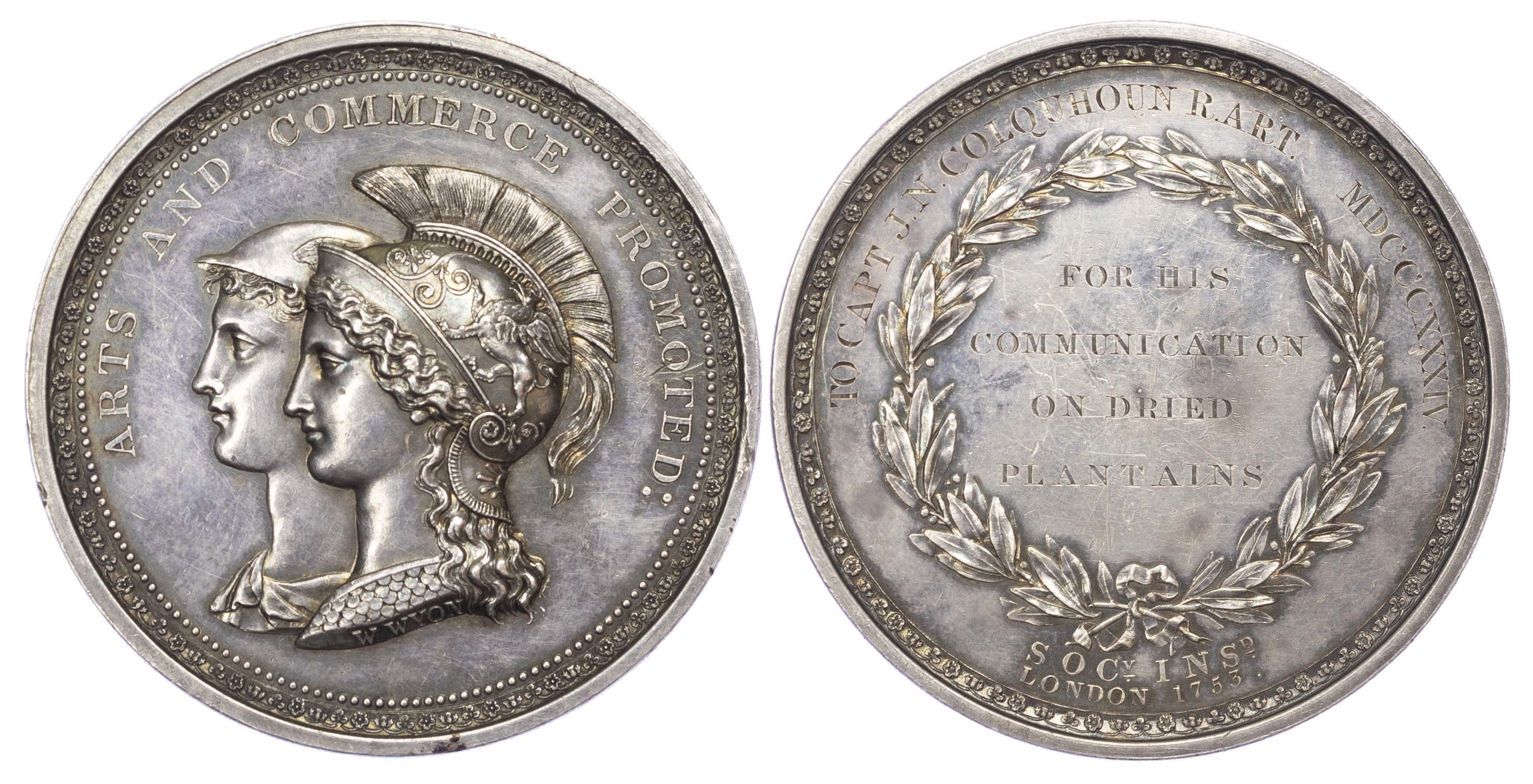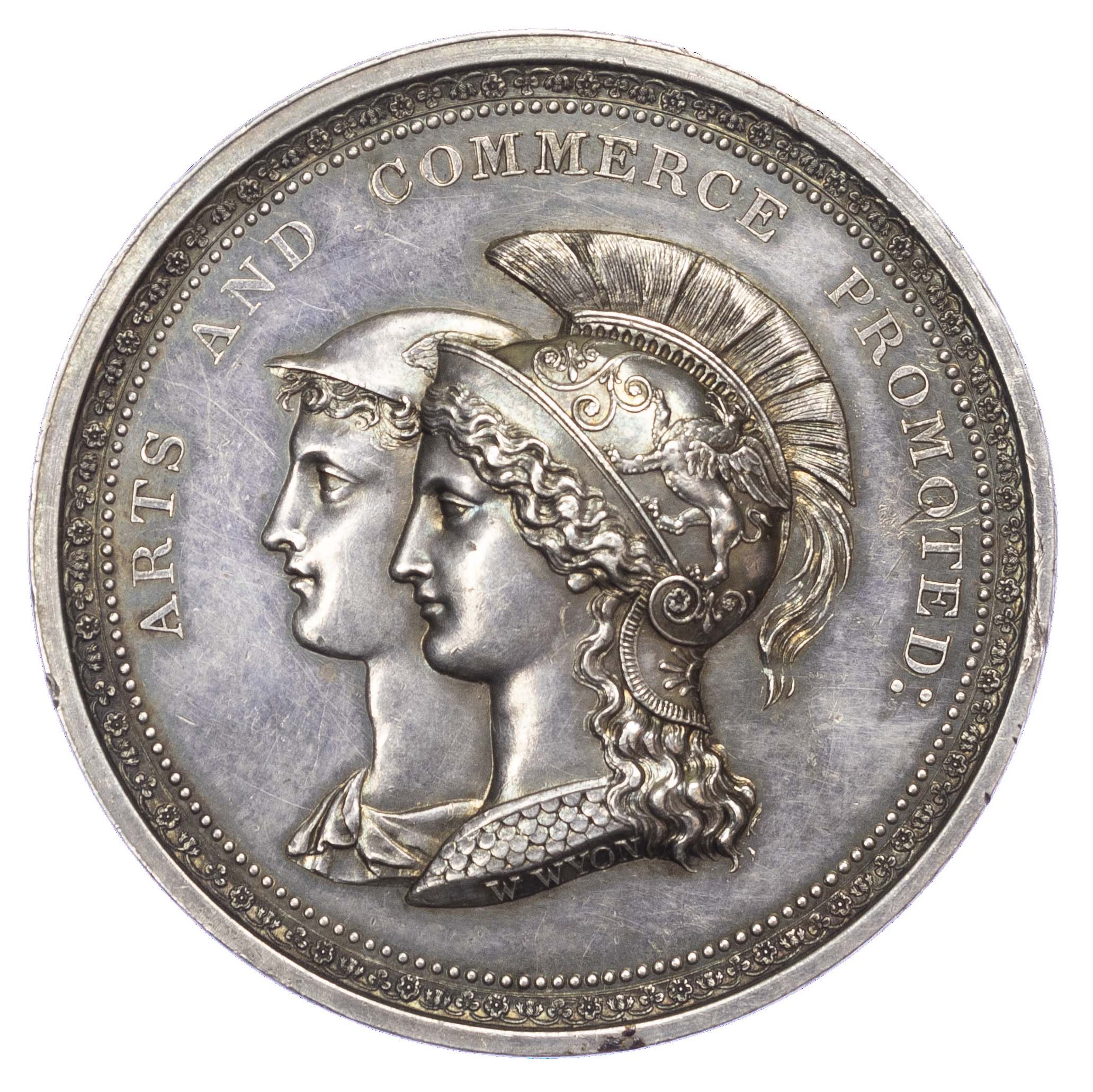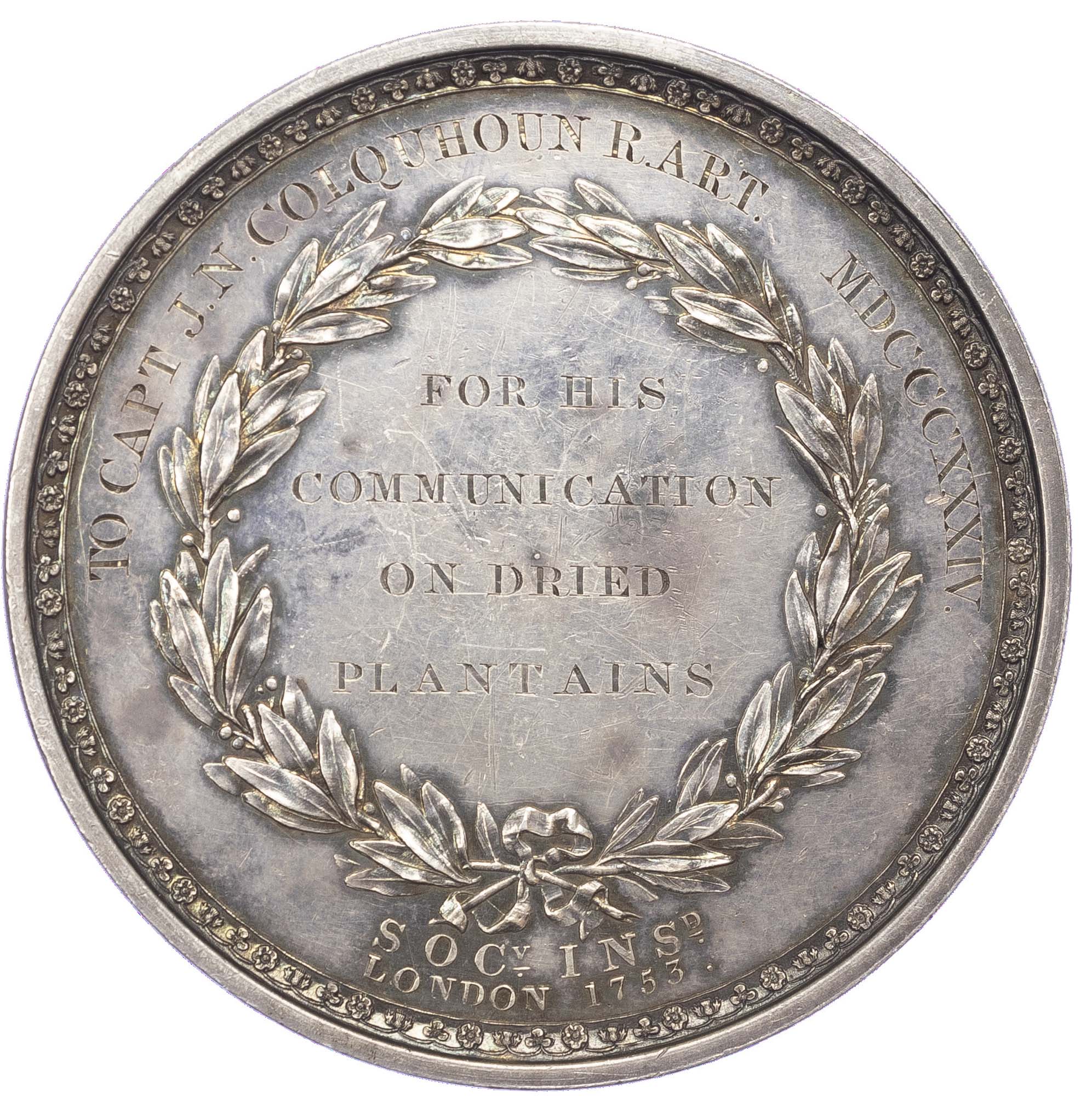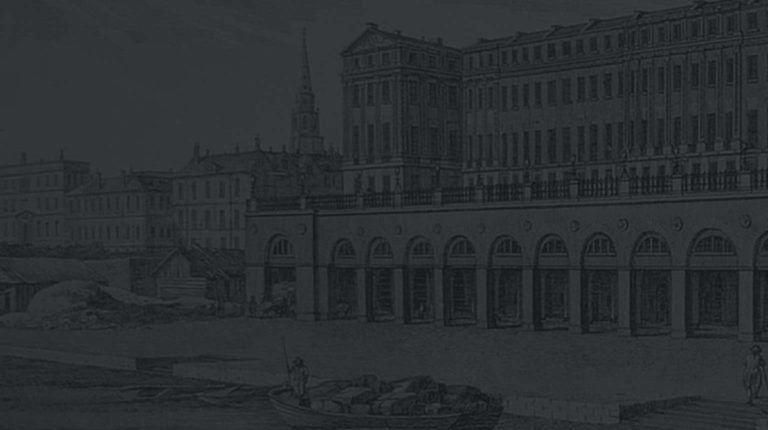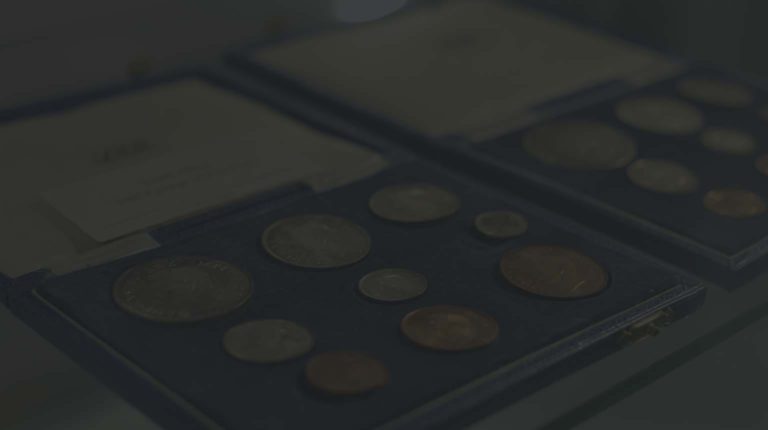Description
London, Society of Arts – Horticulture, AR Prize medal 1834 (52mm.) by William Wyon, awarded ‘To Capt. J. N. Colquhoun R. Art. MDCCCXXXIV For His Communication on Dried Plaintains’. Conjoined busts of Mercury and Minerva l., she in plumed helmet. Rev. engraved inscription within and around wreath. (Allen 16; Eimer 647).
Extremely Fine or better, blue tinged iridescence to toning.
Captain Colquhoun’s paper was on the Musa paradisiaca and specimens were exhibited ‘from the western coast of Mexico, where, in this dried state, it is called Platano passado’ – ‘a sample of which has been placed in the Society’s Repository’.
James Nisbet Colquhoun (1791-1853) was born in Guernsey and fought in the Peninsular War. He had invented a form of torpedo which he thought might benefit the whaling industry. It was too successful, the whales exploded and sank. He first visited Mexico in 1821 and in 1826 introduced the first steam pumping system for clearing the silver mines of water. In 1836 he assisted the Spanish army, under General Espartero, in raising the siege of Bilbao. He served on the jury of the Great Exhibition and was a director on the Great Northern Railway. Colquhoun received the Military General Service medal for the Peninsular War and from the Spanish Government, the Medal for the Action of the 5th May, 1836; twice the Cross of San Fernando, Classe laureado (granted only to those who had commanded a battalion, in a successful engagement) and was created a Commander of the Order of Isabel la Catolica. A copy of his obituary is sold with the medal.

